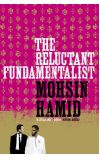
29 Dec 2012 01:40:14
We learn that Changez is a highly educated Pakistani who worked as a financial analyst for a prestigious firm in New York. But after a disastrous love affair and the September 11 attacks, his western life collapses and he returns disillusioned and alienated to Pakistan.
All of this Changez reveals in an almost archly formal, and epically one-sided, conversation with the mysterious stranger that rolls back and forth over his developing concern with issues of cultural identity, American power and the victimisation of Pakistan.
The stranger is fidgety and anxious, and at first Changez's elaborate self-justifications for his contentious sentiments begin to suggest that perhaps he is a more sinister figure than he allows. Gradually, however, we are brought to wonder whether the person in jeopardy is not the stranger, but Changez himself.
One of the novel's notable achievements is the seamless manner in which ideology and emotion, politics and the personal are brought together into a vivid picture of an individual's globalised revolt. But more intriguing, and arguably more impressive, is the fact that Changez is a sympathetic figure in spite of some objectionable opinions – he admits, for example, to being "remarkably pleased" by 9/11.
In a sense, he is the embodiment of the argument that says that America has created its own enemies. Although that outlook may be fashionable on some US campuses, it has become practically universal in Pakistan, a country blighted by fundamentalists who display no hint of reluctance at all.
Indeed some argue that the social and political crisis into which Pakistan appears to be sinking ever deeper is at least partly the result of its political class refusing to challenge these unreluctant fundamentalists, preferring instead to take refuge in crowd-pleasing anti-Americanism.
The Reluctant Fundamenalist is in no way a critique of Pakistan's intellectual denial. If anything it could be described as an example of it. But if that were the case, it would do nothing to undermine its strength as a novel. It's not Hamid's job to right the problems of his country of birth. His job as a novelist is to capture a particular reality and give authentic voice to the characters therein. And in this he has succeeded with a sureness that is quite mesmerising

